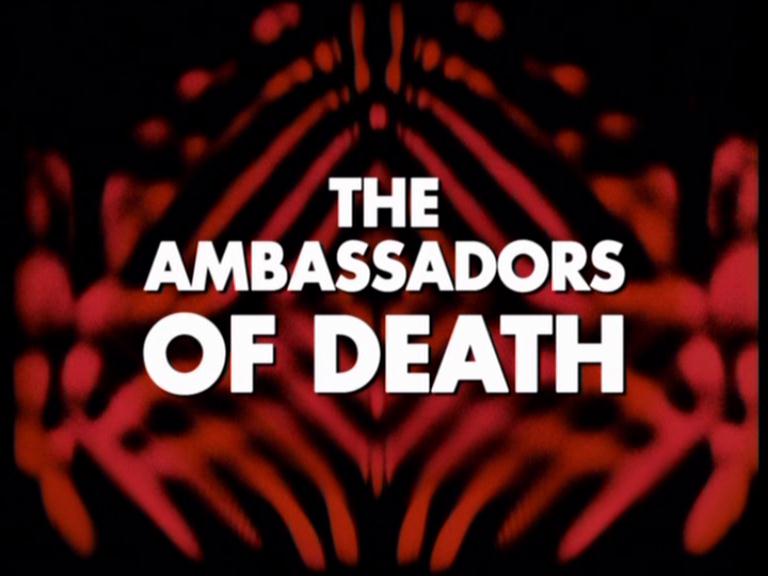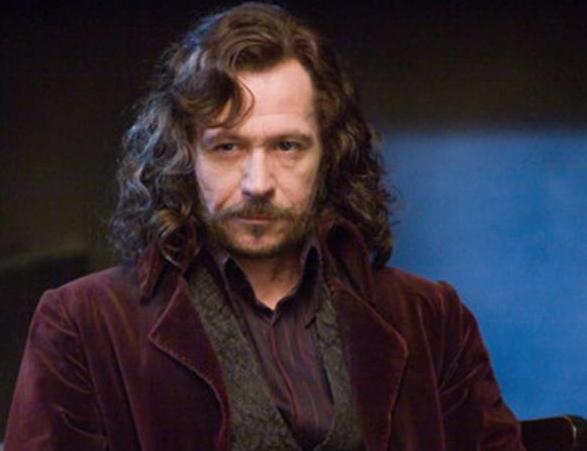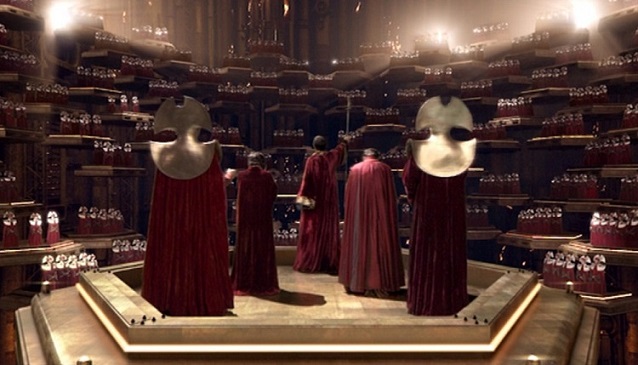 |
| EEEEEEERRRWW-TWAAANG! |
Nonstop, nail-biting, amazing-ness. A great mystery, tons of action and excitement, basically out and out awesomeness.
Human Diplomacy
The human race has once again managed to create a global destruction level diplomatic crisis with another species, this time over the capture of a few diplomats by an insane general.
You'd think that an all-out war over this general's friend being killed and three ambassadors being kidnapped would be a bit of overkill, but...well...look at history. World War 1, if you need a really big example. This is exactly that kind of thing that starts wars for humans, and these aliens, at least, seem no different.
| We're just about average. Well, more like the median. I mean, the Dalek brings down the average quite a lot. |
This idea of average horribleness is one that I'd like to discuss with this episode. (Yes, that is the technical term. Average horribleness.)
Our Aliens
 |
| Sirius Black wants his line back. |
For the most part, aliens are simple. They're monsters or kindly helpers. They're homogeneous groups of rubber faced people who all have the same purpose. Time Lords exist to watch over time; Daleks exist to exterminate; Cybermen exist to Upgrade; the Nestene Consciousness exists to invade.
Aliens often represent certain facets of human society if they're sentient, or parts of the animal world if they are not. I've heard it said that the Daleks are like Nazis, and that the Cybermen are Communists. I'm not sure the analogy is perfect, but I see where people are coming from. We base our fictional characters on what we see in the real world, so aliens will always be simplified versions of humans.
 |
| Sutekh wants to know our location from galactic zero center. |
We are not just average horribleness. We are the point from which all horribleness and goodness emanates. We are galactic zero center in the species morality galaxy, the star from which all the rightness and wrongness exploded to form the planets that are our good and evil aliens. We have to be average, because we base everything on ourselves, extrapolating goodness from the best of us and evil from the worst.
Astronauts and Diplomats
The aliens in Ambassadors of Death are not evil. They are not even mean. They provide the astronauts they have captured with a nice place to live, and a virtual reality that will keep them happy until they are returned to earth. They are willing to negotiate with the Doctor when he lands on their ship.
But they also threaten to blow up the earth if their ambassadors are not returned.
Would not humans do exactly the same thing? Imagine Brigadier Lethbridge-Stewart in this situation. Some alien has captured the Doctor, Liz, and, I don't know, Sargent Benton. He would sure threaten to blow up those aliens if his people weren't returned.
Stupid and Greedy Humans
I said that this series was the Doctor cleaning up after stupid and greedy humans. And it is.
But there's one more thing to add while we're talking about humans being average. The Doctor is a Time Lord, better than us, helping us fix our mistakes. He's better than us, and helps us primitives be better people.
Actually, no. That's how it seems; that's not how it is.
 |
| I mean, only two of them voted against the Final Sanction. TWO! |
 |
| Let's all agree to forget it ever happened. |
 |
The Doctor cleans up after stupid and greedy humans because the Doctor is the Doctor. Because he (and I know this is sort of a retcon) is the man that makes people better, never cruel or cowardly. There's a reason this mad alien is our hero, and it's not because his species is better than ours; it's because he can be a model for how we should be.
Ambassadors of Death
What? You thought I forgot that I was supposed to be reviewing an episode, not waxing phony-philosophical about the morality of the human race?
Ambassadors of Death is simply a good story. There are many turn around, the mystery keeps up the whole time, until it's finally revealed that the general is behind it all, and the peril is very exciting.
I particularly like that the Doctor, who is used to traveling in the TARDIS, has to go up in a clunky, primitive, human spacecraft. And it almost kills him with G-forces because, of course, it gets sabotaged.
There are just so many wonderful moments in this story.
 |
| Awesome. |
- The whole sequence where the Doctor goes into space. And the alien space ship. And the tense sabotage scene. And at the end of it when he gets gassed after making it back to earth.
- That wonderful little moment where they're interrogating that one man, and the Doctor yells at him something about standing at attention and calling him sir, and they use his response to figure out that he has a military background. It was just so brilliant of the Doctor.
- The Ambassadors are also really cool, with their zappy powers.
- That device the Doctor builds to communicate with the Ambassadors.
- Taltalian's death. I sort of expected it, but it was still really freaky when he got blown up by the time bomb.
- The Doctor going to shake hands with the Astronauts at the end, and then realizing that they kill with a touch of their hands. That seemed like something Eleven would do.
- The insanity of General Carrington. He was just nuts.
Inferno's awesome too, but it's majorly depressing, so this one still wins. But that's for Part 3. More human problems for the Doctor to clean up.
No comments:
Post a Comment